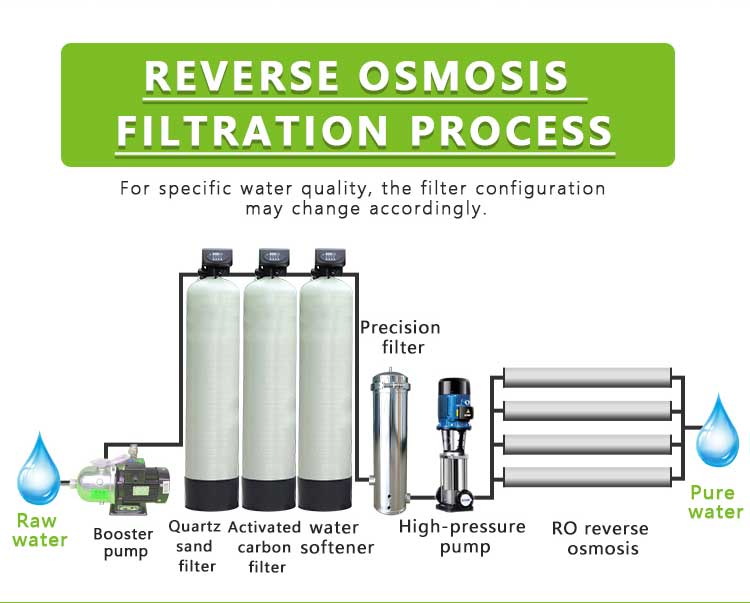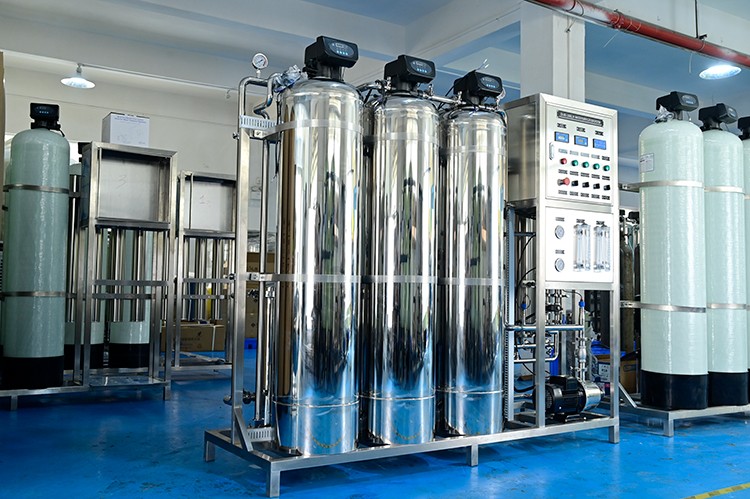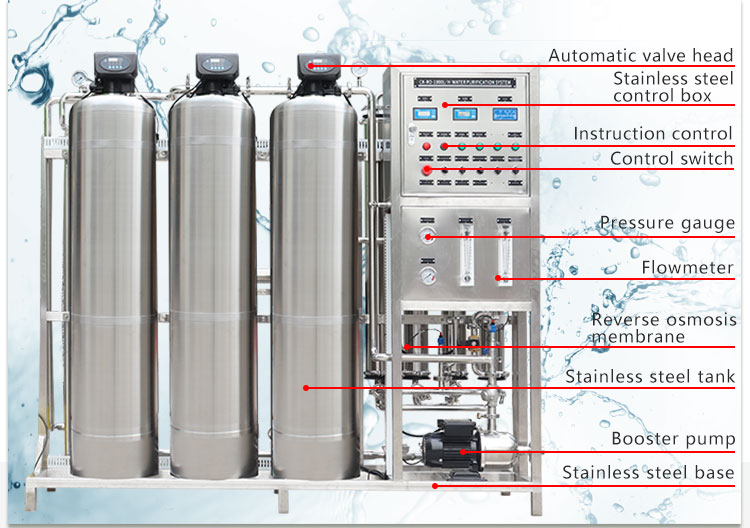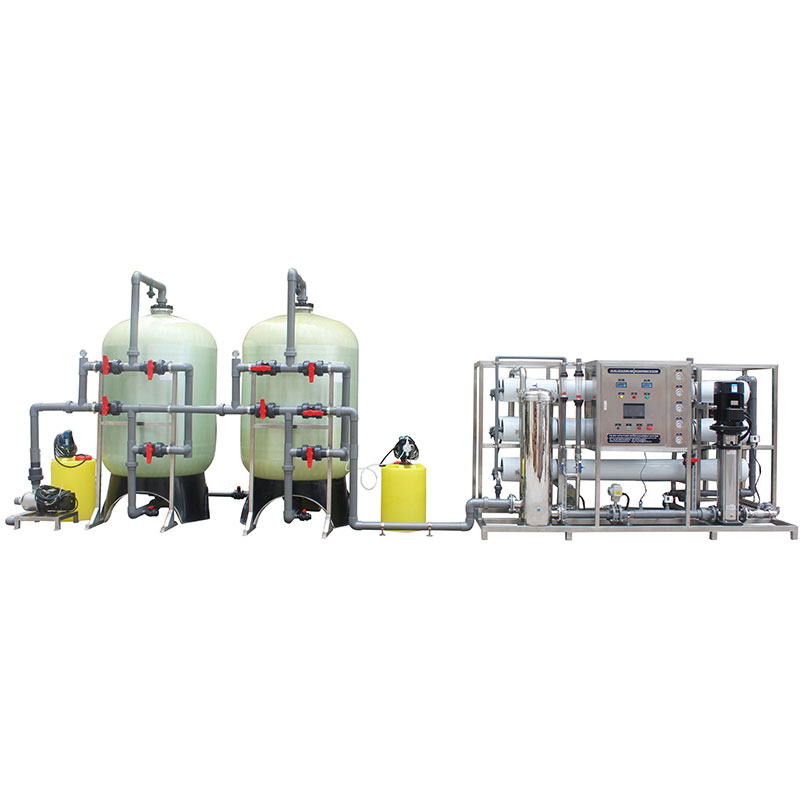Is a 250L/H RO suitable for coffee shops?
In coffee shop operations, water quality has a crucial impact on the final coffee flavor. After realizing this, many coffee shop owners have chosen to install a reverse osmosis (RO) water treatment system to ensure that the water quality of the coffee is at its best. However, when deciding to purchase a reverse osmosis device, the processing capacity of the equipment is a key factor.
So, is a 250 liter/hour (L/H) RO suitable for coffee shops? This article will explore this issue in detail and analyze the characteristics of a 250L/H RO machine and its applicability in coffee shops.

What is a reverse osmosis system?
Reverse osmosis technology is a water treatment method that uses a semi-permeable membrane to remove dissolved solids, impurities, ions and microorganisms from water. It is usually used to reduce the hardness of water, remove pollutants, and make the water purer. The core of the reverse osmosis system is the reverse osmosis membrane, which has an extremely small pore size that only allows water molecules to pass through, while other impurities are trapped on the other side of the membrane.
What are the characteristics of a 250L/H RO machine?
A 250L/H reverse osmosis machine means it can process 250 liters of water in one hour. Equipment of this capacity is usually small in size and suitable for installation in environments with limited space. It is suitable for commercial places that require a certain amount of high-quality water.
Main parameters of 250L/H reverse osmosis machine:
1. Processing capacity: 250 liters/hour.
2. Pure water to wastewater ratio: usually 3:1 or 2:1, that is, for every liter of pure water produced, about 0.33 to 0.5 liters of wastewater are discharged.
3. Power requirements: generally between 150W and 300W.
4. Operating pressure: usually between 0.5 and 1.5MPa (megapascals).

What are the requirements of coffee shops for water quality and water quantity?
Coffee making has extremely high requirements for water quality, and the mineral content in water directly affects the taste of coffee. Water with too high hardness will make the coffee taste bitter, while water that is too pure will make the coffee lack layering. Ideally, water for coffee should retain some minerals while removing impurities that may affect the flavor, such as chlorine and heavy metals.
A 250L/H reverse osmosis machine performs well in meeting water quality requirements. Based on an 8-hour business day, this device can provide up to 2,000 liters of pure water per day. For a small or medium-sized coffee shop, the daily water consumption for coffee making is usually between 500 and 1,500 liters. Therefore, a 250L/H reverse osmosis machine is fully capable of meeting the daily water needs of a coffee shop and maintaining a stable water supply even during peak hours.
What are the advantages of a 250L/H reverse osmosis machine?
1. Stable water quality
A 250L/H reverse osmosis machine can provide stable, high-quality pure water. This is crucial for coffee shops because the stability of water quality is directly related to the consistency of the taste of coffee.
2. Easy to operate
Modern reverse osmosis system designs focus on user-friendliness, and most 250L/H devices are equipped with automatic cleaning functions, reducing the frequency of manual maintenance. This is a significant advantage for coffee shops with limited staff.
3. Space saving
Due to its small size, a 250L/H RO machine can be easily installed under the sink or in a locker in a coffee shop, without taking up valuable operating space.

What are the potential limitations of a 250L/H RO machine?
Although a 250L/H RO machine is suitable for small and medium-sized coffee shops in terms of processing capacity, there are still several factors to consider:
1. Wastewater discharge
The RO system will produce wastewater, which is usually 20% to 50% of the pure water volume. Coffee shops need to properly handle this wastewater to avoid wasting water resources or affecting the sanitary environment around the equipment.
2. Upfront investment
The initial purchase cost of the RO equipment is relatively high, although the improved coffee quality brought by the purified water may offset this cost in the long run.
3. Equipment maintenance
The RO membrane needs to be replaced regularly, and the specific frequency depends on the water quality and the intensity of use. If the water quality in the area where the coffee shop is located is poor, the replacement cycle of the membrane may be shortened, which means additional maintenance costs.

Conclusion: Is a 250L/H RO machine suitable for coffee shops?
In summary, a 250L/H RO machine is an ideal choice for most small and medium-sized coffee shops. It not only provides high-quality purified water and ensures the consistency of coffee taste, but also has the advantages of saving space and easy operation. However, before deciding to buy, shop owners still need to consider factors such as wastewater treatment, initial investment and later maintenance. If these factors can be properly managed, then a 250L/H RO machine is undoubtedly a reliable equipment to improve coffee quality.






